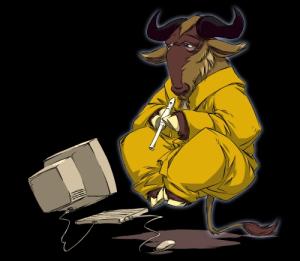
Posted on 01/16/2006 5:29:36 PM PST by antiRepublicrat
GNU GENERAL PUBLIC LICENSE Discussion Draft 1 of Version 3, 16 Jan 2006
THIS IS A DRAFT, NOT A PUBLISHED VERSION OF THE GNU GENERAL PUBLIC LICENSE.
Copyright (C) 2006 Free Software Foundation, Inc. 51 Franklin Street, Fifth Floor, Boston, MA 02110-1301 USA Everyone is permitted to copy and distribute verbatim copies of this license document, but changing it is not allowed.
Preamble
The licenses for most software are designed to take away your freedom to share and change it. By contrast, the GNU General Public License is intended to guarantee your freedom to share and change free software--to make sure the software is free for all its users. We, the Free Software Foundation, use the GNU General Public License for most of our software; it applies also to any other program whose authors commit to using it. (Some Free Software Foundation software is covered by the GNU Lesser General Public License instead.) You can apply it to your programs, too.
When we speak of free software, we are referring to freedom, not price. Our General Public Licenses are designed to make sure that you have the freedom to distribute copies of free software (and charge for this service if you wish), that you receive source code or can get it if you want it, that you can change the software or use pieces of it in new free programs; and that you know you can do these things.
(Excerpt) Read more at gplv3.fsf.org ...
(rimshot!)

And...what does it do? (so I am iGNUrant!)
Hear, Hear!!! I admire open source if for nothing else than that it is a golden middle finger held up to all the control freaks in the world who think buying their product gives them a license to controlling a bit of your life. Too bad there isn't an Open Source government option or Open source education or imagine Open Source Medicine (maybe this would be a little much). I like the way it raises standards by forcing non open source companies to produce better products and it provides a good challenge to increasingly monopolistic and unresponsive economic structures. Look in the future for laws taxing open source software to make it fair to commercial companies.
It's the license covering a large portion of free software, including Linux. It's provisions have some controversy, even among free software advocates and users, and the new one may have even more.
Got it. Thanks!
Disclaimer: Opinions posted on Free Republic are those of the individual posters and do not necessarily represent the opinion of Free Republic or its management. All materials posted herein are protected by copyright law and the exemption for fair use of copyrighted works.